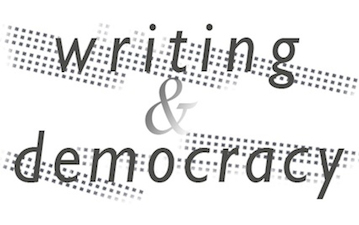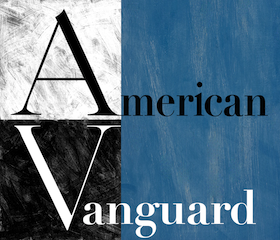Reflection: Leah Iannone
When I decided to join the Riggio Writing and Democracy program in its inaugural year, the word “democracy” scared me—a lot. I actually studied its meanings. It’s not that I didn’t know the definition, but I sensed that it was an idea much bigger than I’d considered. Before the semester started, I had horrible (and quite dramatic) daydreams that the word “democracy” would be worked into most, if not all, sentences—all day, all the time, by everyone
I was going to be prepared to use it just as excessively as the rest. Of course, that daydream never materialized, and as classes got under way, I was subtly re-introduced to that bigger idea.
It is Lynne Tillman and her Closely Watched Texts class that remain my most vivid and affecting memories. Lynne, both wildly brilliant and amusing, made connections between writing and democracy through art, movies, music, digital animation, and more. She taught exciting essays and short stories—“A Stroke of Good Fortune,” “Bartleby.” At first, the latter seemed like something I would have “preferred” not to read, but I was wrong. It’s an amazing piece, and whenever I get a Jeopardy answer (in the form of a question) correct regarding that scribner-of-few-words, I always think, “Thanks, Lynne!”
Now, the writing part of the Riggio Writing and Democracy program was the part I thought I had down . . . that is, until the third or fourth week, the class of the Great Red Pen Debacle of 2006. It’s never good when your professor has to make a speech right before you get your first papers back, warning you not to be alarmed or upset. We were used to being good students, but Lynne told us that she had had to mark our papers like nobody had ever marked them before in order to make us better writers; and that’s what she did (and likely single-handedly kept BIC in business that year).
I got my paper back and was extremely alarmed and extremely upset. I was blinded by the red—there was so much red. It didn’t make me feel better that my fellow students’ papers were just as colorful. I was embarrassed, but after some time, a better feeling came: humility. I was humbled. Lynne did what no teacher had been able to do for me in years: She made me question and doubt everything I thought I was good at—but in a positive way. There was something about Lynne that made it ok to feel uncomfortable and non-excellent because as a writer, it’s necessary. I don’t think I realized that until her class. I need to hate my prose and loathe my poems. I need to write terribly and be shocked by the fierceness of a pen.
I need many of those moments to help me recognize the truly excellent ones. As writers we all hope to experience a few of those in our writing lives.
A graduate of the Riggio Program, Leah Iannone now works as the Curriculum Coordinator at the School for Undergraduate Studies at The New School for Public Engagement.



